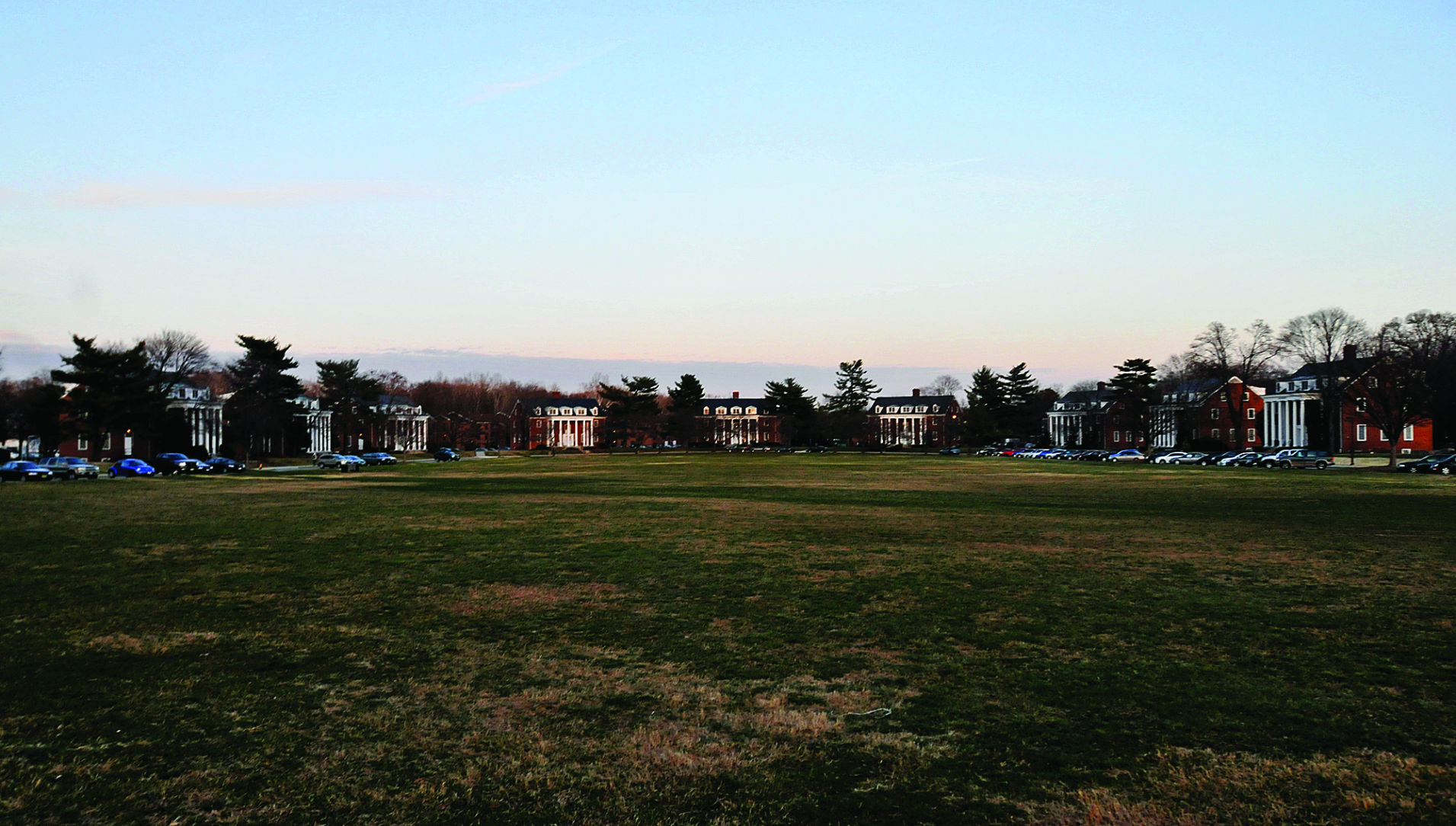
Fraternity Row
Delta Chi fraternity lost its university recognition Monday, according to a letter obtained by The Diamondback, which was addressed to chapter President Jack Canavan and signed by Student Affairs Vice President Linda Clement.
Clement accepted the Department of Fraternity and Sorority Life’s recommendation to remove the chapter’s recognition after “the unacceptable patterns of behavior the chapter has exhibited for the past two and a half years,” Clement wrote in the letter.
Canavan sent an email addressed to “Chapter Presidents” on June 16, asking members of Greek life to write a letter to DFSL or Clement supporting the chapter.
“Although our chapter has had no negative incidents this semester, has contributed positively to the Greek community and has improved greatly in many facets, DFSL believes we do not deserve to be a fraternity anymore,” Canavan wrote in the email.
The chapter held an “away weekend” in December at a hotel in Pennsylvania, leaving more than $20,000 in damage behind, Clement wrote in the letter.
After this incident, the chapter was placed on probation on Feb. 3 until December 2015 and needed to comply with “a series of self-imposed and DFSL conditions,” but the chapter let several deadlines pass and completed certain requirements months later, Clement wrote in the letter.
DFSL’s recommendation to revoke the chapter’s recognition contradicts previous letters “that said our recognition status would be reviewed at the end of the Fall 2015 semester, has no basis based on our behavior this semester, and threatens to set a dangerous precedent,” Canavan wrote.
And Canavan said he felt like DFSL did not handle the situation properly.
“I feel like a lot of the stuff was done behind our backs,” Canavan said. “Actively keeping us out of the talks and circumventing us was a poor move on their part and not a professional thing to do.”
Corin Gioia Edwards, DFSL advising and programming associate director, sent an email about Delta Chi’s removal to the “UMD Greek community” Wednesday.
“I hope this decision will serve as a reminder to all chapters in our community that the University is serious about the expectations we put forth, and about the values we espouse,” Edwards wrote. “Failure to uphold our collective mission … will result in grave consequences.”
In her letter to Canavan, Clement also referred to a Delta Chi “satellite” house as “a source of neighborhood and community complaints reported to university and county police.”
Clement wrote that neither Canavan nor Chapter Advisor Jose Rodas addressed this problem properly and instead reported that a new group of members would be moving into the house next year.
But Canavan said all the members who lived in that house were removed after a chapter membership review at the start of the spring semester.
“All of the members of that house were removed in the membership review because they focused on social aspects and partying, which we were trying to distance ourselves from,” Canavan said. “The university still kind of inextricably linked that house to Delta Chi.”
Clement wrote that she found it “disturbing” that those who entered the spring semester program had a combined 3.26 grade point average, which dropped to 2.61 by the end of the semester.
“While this drop in academic performance may not be attributed solely to membership in Delta Chi, it raises serious questions about the possible negative impact of membership,” Clement wrote.
The chapter’s recognition will be withheld for four years, or until all current active undergraduate members graduate, Clement wrote.
“I remained profoundly concerned that the issues outlined in this letter are reflective of a deeper problem in the chapter and have not been adequately addressed,” Clement wrote.
However, Canavan said the chapter had been trying to make a positive change with philanthropy events such as Delta Chi Movers, Bowling for Soup and Delta Chi Day all of which “raised quite a lot of money and quite a lot of food to help a lot of people.”
“The decision to remove us shouldn’t reflect poorly on the character of all of our members,” Canavan said. “Get to know us for who we really were and the good things we truly did rather than focus on this decision that has been made.”



